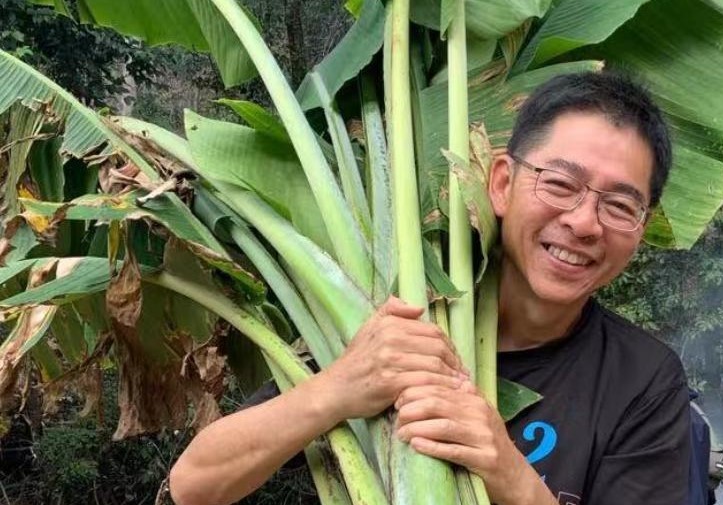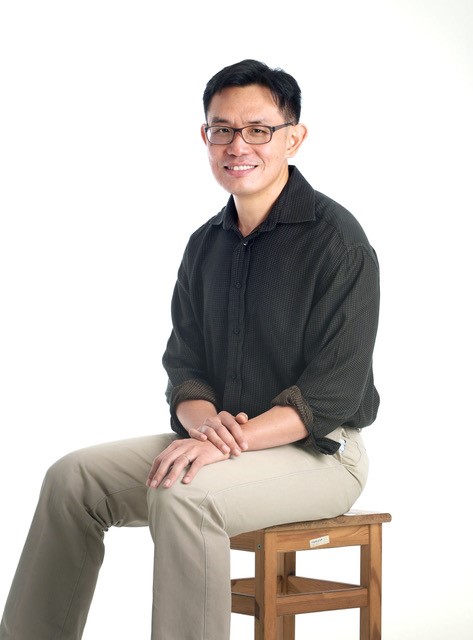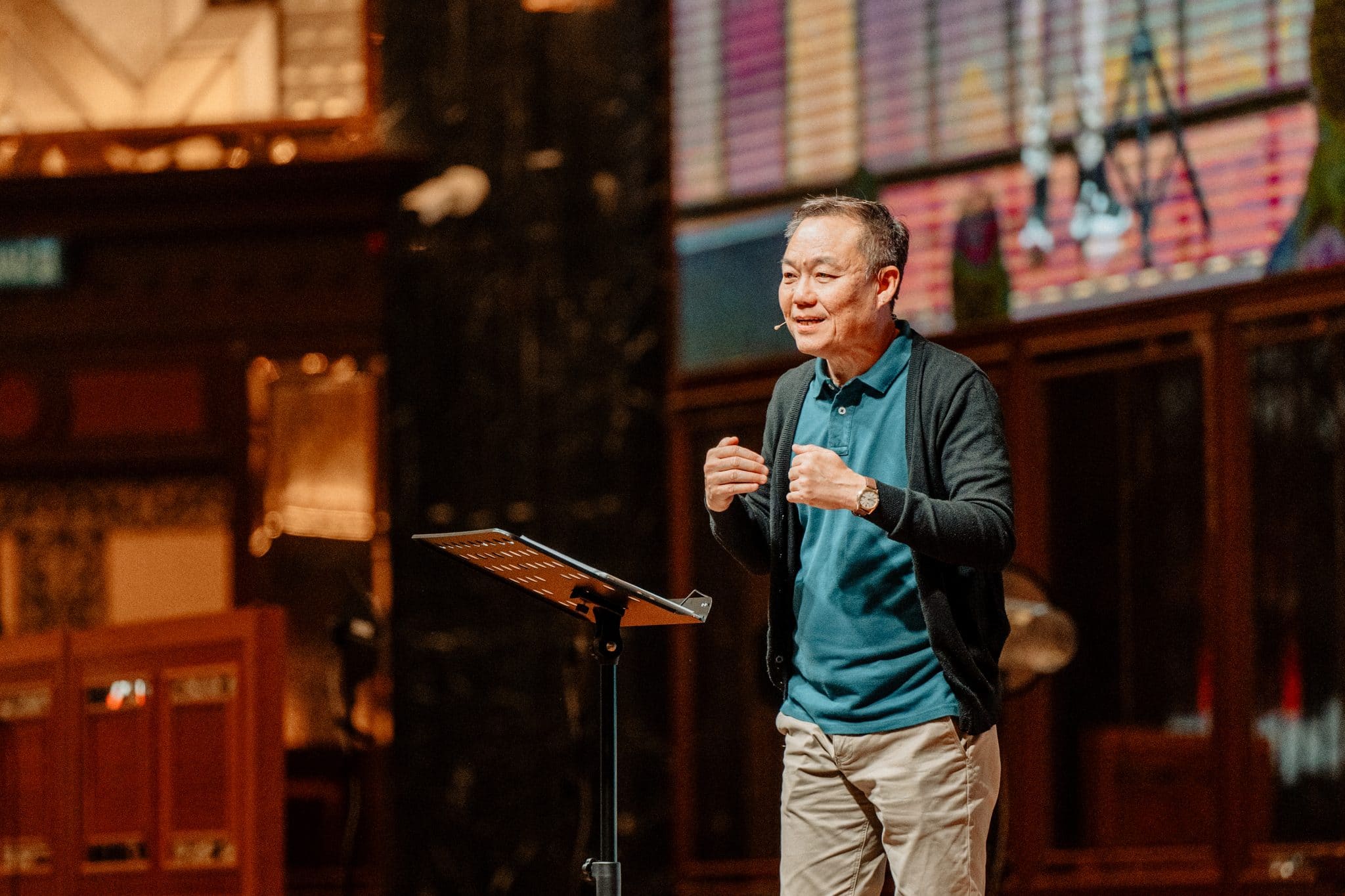7 biblical handles on managing money as Christian families
by Christine Leow // November 27, 2020, 1:43 am

Instead of accumulating wealth, think of investment in different terms, says Dr Tan Lai Yong: When young, invest in skills. In middle age, invest in contentment. In maturity, invest in others. Photo courtesy of Dr Tan Lai Yong.
The Salt&Light Family Night guests on Tuesday, November 24, came from varied backgrounds.
Dr Tan Lai Yong is a medical doctor and lecturer at the National University of Singapore (NUS) who has spent years in medical missions in rural China.
Abel Ang is a technopreneur, and Group CEO and Director of Advanced MedTech, a US$200 million global player in urology devices and services, and the largest high growth medtech company in Southeast Asia.
Pastor Benny Ho is the senior pastor of Faith Community Church in Perth, Australia. He also founded Arrows College and Arrows Resources to equip and disciple nations.

Pastor Benny Ho is the senior pastor of Faith Community Church in Perth, Australia and has written a book on godly perspectives of finances called Managing Money God’s Way. Photo courtesy of Pastor Benny Ho.
But they came with a single objective – to share practical tips and Biblical truths on managing money.
Over 400 participants logged on to Salt&Light Family Night this week to listen and learn. For many, financial matters weighed heavily on their minds. More than 40% said that, on a scale of 1 to 10, thinking about financial matters ranked 7 or 8.
As proof that mulling over money is something even youths do, two in five who joined the Zoom chat were millennials between 18 and 35.
Here are the godly handles the panellists shared for dealing with money matters.
1. Begin with a biblical perspective
Ps Benny, who has written the book, Managing Money God’s Way, encouraged the participants to “embrace a missional lifestyle”.
He explained what this means: “Don’t end up buying things we don’t need with money we don’t have just to impress people we don’t really know.
“We can end up having lots of gadgets but no generosity. So, it would be good to learn to live simply so that others may simply live.”
Live with eternity in mind, he urged, “so we can seek, serve and really pursue God more than money (Matthew 6:33). In actions, this would mean living as the founder of the Methodist church, John Wesley, taught: Earn all you can, save all you can, give all you can.
He added: “1 Timothy 6:17-19 is a really good guide about money. It’s really about eternity so that we may take hold of life that is truly life.”
“We can end up having lots of gadgets but no generosity.”
Speaking to the millennials present, Dr Tan encouraged: “From young till 30, invest in skills – people skills, IT skills .
“From 30 to 50, invest in contentment. I live in a four-room HDB flat and I’m so happy in it. Every morning I wake up in the morning and take a picture of the sunrise and send it to my extended family.
“In your later years, invest in others. I’m going to be 60 and it’s a beautiful time to invest in others.”
This may mean choosing not to be part of the rat race.
“Many have climbed the corporate ladder so fast and so competitively. Now you ask them to invest in the youths, they say, ‘Hah? Very tiring.'”
But he encouraged those of his generation to “have that reserve, that adventure, to nurture the next generation”.
2. Be financially literate
Ang, who has been in the marriage ministry for close to a decade and has taught couples about finances, believes financially literacy is important.

Abel Ang is the Group CEO and Director of Advanced MedTech and is known as the CEO who chooses to live in an HDB flat. His current home is the one he moved into when he got married more than 21 years ago. Photo courtesy of Abel Ang.
“It is a very fundamental skill that only 20% to 30% have acquired.
“So I’m not surprised when people tell me that, in marriages, arguments about finances is the source of 70% of the quarrels. This is the 70% or 80% of people who didn’t have any sort of financial planning going into the marriage. It’s like driving a car without a driving licence.”
“Financial planning is an act of responsibility towards the family.”
Acquiring a level of financial competency, or what Ps Benny calls a “money map”, is not difficult, promised Ang. It essential means looking at running costs – monthly expenses, tithes, giving to the needy, money to parents – and seeing what is left for discretionary spending, instead of spending according to what is in the bank account.
“Can I afford to spend $1,000 every month on a car? Can I afford to add another $2,000 every month for a condo?”
Ps Benny added that how these questions are answered will depend on the level a person chooses to live:
- Above your means – spending more than you have;
- With your means – spending every dollar earned;
- Within your means – spending with a little left over;
- Below your means – choosing not to spend, even when you can.
Ang said: “Living below your income allows you to not be perpetually stressed about not having enough.”
On a participant’s question of whether such planning and saving demonstrate a lack of faith, Ps Benny said: “Financial planning is an act of responsibility towards the family, so that when there is a need we don’t have to depend on other people.”
3. Be responsible
Once monthly expenses are accounted for, “some level of insurance is relevant”. This is part of providing responsibly for the family, said Ang.
“This comes from personal experience. My father passed away when I was six. He was very lightly insured. I remember the exact sum of the insurance payout – S$5,000.”
It was not a huge sum.
Good insurance, he added, would enable the family to carry on without substantially altering their quality of life should anything happen to the breadwinner.
As to which type of insurance to buy, Ang recommended term insurance because “it provides insurance value without management fees and holding charges”.
“I do think there is a biblical basis for investment.”
Then, some money can be set aside for investments to mitigate the “time value of money” which means that the money you have now will be worth less in the future. This is caused largely by inflation.
“I do think there is a biblical basis for investment,” said Ang citing the Parable of the Talents (Matthew 25:14–30).
“But you should not be spending a vast amount of your time trying to manage your investment.”
Regarding what to invest in, he said: “Exchange traded funds which is created to follow the stock market indices that you are buying. There is a very marginal management fee on such funds. You are not paying somebody to manage it.
“It buys a basket of stocks which follows the index. If the index goes up, you make money. If the index goes down, you lose money. Historically, the index almost inevitably always goes up net of some of the aberrations that you see in the financial market.”
4. Agree as a couple how to manage money
Even before they got married, Ang and his wife already planned together how they would spend their money.
“It’s important to have someone share the same values (about money) with you. A simple decision that we made set us on the path of living simply for the entire of our married life of more than 21 years.
“It’s important to have someone share the same values (about money) with you. “
“We decided that we would only live within the boundary of one of the salaries of our two careers. By doing that, we put a constraint on ourselves.”
Because of that, they chose to live in a HDB flat. The apartment they have now is the one they moved into when they got married.
The decision also freed them from fear of retrenchment and gave them the freedom to move out of a job if they chose to.
Dr Tan and his wife also agreed to live on one person’s income. For them, it was based on whichever was the lower income.
5. Practise financial fidelity
Whether or not a couple chooses to have a joint account, which was a question that was raised, Ang believes in being transparent about how money in spent within a marriage.
He calls it financial fidelity and encourages couples to talk openly to each other about their finances.
Dr Tan has practised this throughout his close to 30-year marriage. “We don’t spend $50 without asking each other.”
He shares of a time he wanted to buy a pair of soccer boots. One pair cost $32 while the other cost $68. He consulted his wife.
She said: “$68? Will you dribble better or score more goals? No? Then, buy the S$32 pair.”
6. Teach children about money
Dr Tan shared a piece of parenting wisdom his mother-in-law passed to him when he was a young father: “When you go shopping, when you walk around the HDB area, and your child wants to buy an ice-cream, wants to buy a book, wants to go on a kiddy ride for 20 cents? Don’t do it.
“Listen to them, look at the book, look at the toy. Then say, ‘Do you really want it? If so, then tomorrow we will go (get it)’.”
This cuts impulse buying.
Dr Tan also advocates talking to children about the family finances.
“We should discuss more. We are afraid of worrying them – we say, don’t worry them, their job is to study. But I think we are short-changing them (when we don’t talk about money).”
7. Understand God’s heart
Asked if irregular tithing or a lack of tithing is sin, Ps Benny said: “Tithing has gone through several phases. Before the law came in, tithing was already practised. Then, it was given voluntarily.
“During the law, tithing was compulsory. After the Law, it is done willingly. If a Pharisee who has never experienced the goodness of the cross would tithe even spices, how much more we, who have experienced the richness of Calvary’s love? I want to do it out of gratitude, not because I have to.”
“The extended family is an extension of God’s love.”
As for giving to parents or helping extended family members financially, in particular those who have not been responsible with their money, Ps Benny talked about how, in the Jewish world, there is no word to describe the nuclear family.
“In the Jewish mind, when they think about a family, they don’t think mother, father and children. They think of the extended family.”
With the extended family taking care of everything, there is little need for social welfare.
“If there is anything we can learn from that, it is that when extended family can actually be there for each other, that’s how society will be at its best.”
Added Dr Tan: “We shouldn’t help to protect our face, so that we won’t be embarrassed. Help to solve the root of the problem. The extended family is an extension of God’s love.”
Banking head honcho now works with villagers and ex-convicts
“Singaporeans need to learn to live with mess!”: 2017 Singaporean of the Year Dr Goh Wei Leong
We are an independent, non-profit organisation that relies on the generosity of our readers, such as yourself, to continue serving the kingdom. Every dollar donated goes directly back into our editorial coverage.
Would you consider partnering with us in our kingdom work by supporting us financially, either as a one-off donation, or a recurring pledge?
Support Salt&Light


